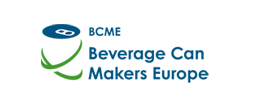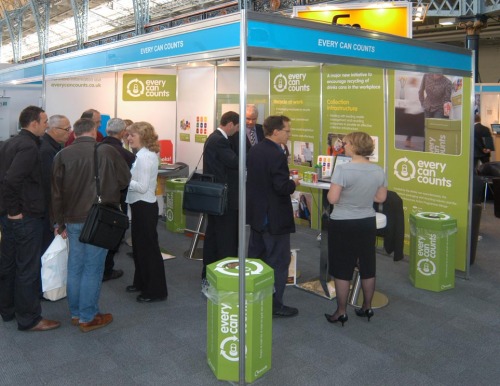This slideshow requires JavaScript.
- Pilot project sees increase in recycling rates of 12.9%
- 22% increase in recycling of 17 or more items regularly
- Lack of awareness a barrier to recycling at home: perceived as a “waste of time”
metalmatters announced the results of a groundbreaking pilot project designed to increase kerbside metal recycling rates. The project, conducted in conjunction with two local authorities, delivered significant results including a 12.9% increase in metals recycled in the biggest trial area of 54,283 households.
The project, the first of its kind, was conducted in cooperation with Nuneaton and Bedworth Borough Council and East Hampshire District Council. metalmatters delivered a community outreach programme which highlighted popular misconceptions about recycling and educated residents on the benefits of recycling as many items as possible. There was an overall attitudinal shift as a result, with almost one in five respondents agreeing that the campaign had encouraged them to recycle more metals. The post project research also showed a 22% increase in those who reported recycling 17 or more items regularly.
metalmatters has set a new benchmark for projects in this industry by using extensive research and consumer testing to develop and refine messages and communications collateral to create a targeted metals campaign. Using the Acorn classification tool, metalmatters evaluated those materials against demographic groups alongside recycling behaviour and competence levels.
Norman Lett, Project Leader, metalmatters, commented: “The project’s goal was to increase existing household metal recycling rates by at least 10% and create a ‘best practice’ model. We came to understand that the key to success was education, to encourage people to recycle more things, more often. In our pre-campaign research many people thought recycling was either a waste of time or that, despite their best efforts, the materials then didn’t actually get recycled. Metals are a precious resource as they are infinitely recyclable and it makes a real difference if they go back into the recycling loop. The consumer wanted reassurance of this.”
Councillor Bill Shepherd, spokesperson for the Nuneaton and Bedworth Borough Council, said: “We are delighted with the results this project achieved, not only the increase in volumes recycled but also the shift in attitudes. The extensive research that went into metalmatters made it extremely effective in changing people’s recycling behaviour.”
Linda Horne, spokesperson for East Hampshire District Council, added: “East Hampshire residents have one of the best recycling rates in the UK, of which we are very proud. Yet, despite this, the metalmatters project delivered increases in recycling rates that are significant. It is certainly a programme others should consider.”
About metalmatters
metalmatters is a partnership between the UK drinks can manufacturers, the Waste & Resources Action Programme (WRAP) and the aluminium and steel packaging and recycling industries. It aims to encourage more people to recycle all of the metal packaging they use at home. For more information visit the consumer website www.metalmatters.org.uk
metalmatters: Funding Partners
1. BCME (Beverage Can Makers Europe) is the European beverage can association whose prime objective is to promote the beverage can. The three members are: Ball Packaging Europe, Crown Bevcan Europe and Middle East and Rexam Beverage Can Europe & Asia
2. WRAP (Waste & Resources Action Programme) WRAP’s vision is a world without waste, where resources are used sustainably. We work with businesses and individuals to help them reap the benefits of reducing waste, develop sustainable products and use resources in an efficient way. Established as a not-for-profit company in 2000, WRAP is backed by government funding from England, Scotland, Wales and Northern Ireland. More information on all of WRAP’s programmes can be found on http://www.wrap.org.uk.
3. Novelis operates Europe’s only dedicated used aluminium can recycling plant in Warrington, Cheshire. The plant has the capacity to recycle every aluminium can sold in the UK for the foreseeable future (currently 6.6 billion cans, which equates to approximately 101,000 tonnes in weight).
4. Tata Steel Packaging Recycling: Tata is the largest steel reprocessor in the UK. TATA Steel Packaging Recycling promotes steel packaging recycling to consumers, local authorities and the commercial sector
 The beverage can is the most recyclable form of drinks packaging in the world. In this blog post we will address common can misconceptions and set the record straight.
The beverage can is the most recyclable form of drinks packaging in the world. In this blog post we will address common can misconceptions and set the record straight.




 An amazing number of people came to the show, thanks in no small part I think to the clever organisational tactic of running separate but related exhibitions on all the topics a facilities or buildings manager could wish for, such as health and safety, security and fire – as well as facilities management. May not sound thrilling, but all the more reason perhaps to group the exhibitions together …
An amazing number of people came to the show, thanks in no small part I think to the clever organisational tactic of running separate but related exhibitions on all the topics a facilities or buildings manager could wish for, such as health and safety, security and fire – as well as facilities management. May not sound thrilling, but all the more reason perhaps to group the exhibitions together … – brilliant collection containers with a pull-down handle to crush the cans, which are ideal for high-profile public spaces, and a bit of fun to use.
– brilliant collection containers with a pull-down handle to crush the cans, which are ideal for high-profile public spaces, and a bit of fun to use.